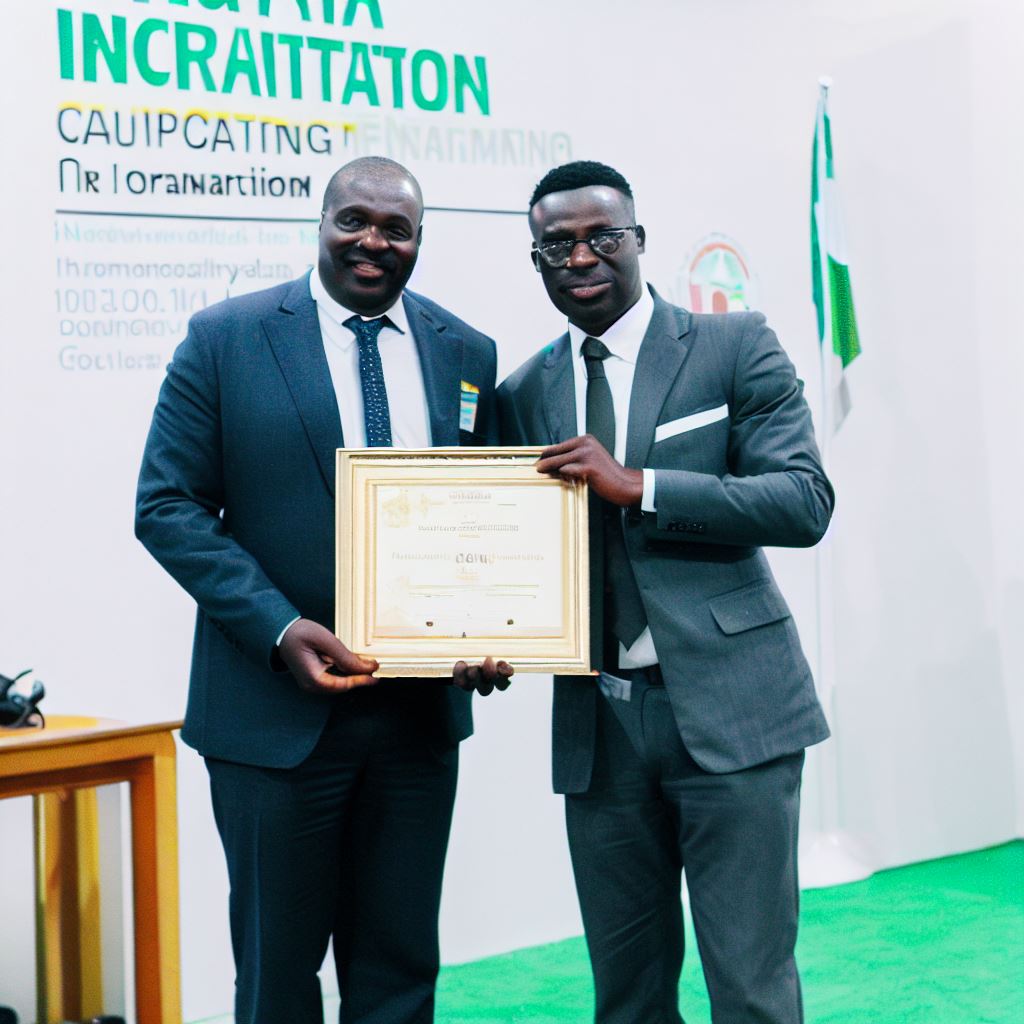Introduction
Let’s explore challenges faced by medical secretaries in Nigeria.
Medical secretaries play a crucial role in the healthcare system by providing administrative support to medical professionals.
They manage patient appointments, maintain medical records, and handle various administrative tasks.
In Nigeria, the importance of medical secretaries cannot be overstated, as they contribute to the smooth functioning of healthcare facilities.
They ensure that medical professionals can focus on patient care by handling administrative duties efficiently.
Medical secretaries are responsible for creating a positive patient experience by managing appointments effectively and maintaining accurate medical records.
Their role also includes managing communication between patients, doctors, and other healthcare staff.
In a country like Nigeria, where the healthcare system faces numerous challenges, medical secretaries play a vital role in ensuring that administrative tasks are appropriately managed.
By efficiently handling administrative duties, medical secretaries contribute to improving the overall quality and efficiency of healthcare services.
Their organizational skills and attention to detail facilitate the smooth flow of operations within healthcare facilities.
Without medical secretaries, healthcare professionals would be burdened with administrative tasks, reducing their ability to provide quality patient care.
Therefore, recognizing and addressing the challenges faced by medical secretaries is crucial for the effective functioning of the healthcare system in Nigeria.
Lack of Proper Training and Education
Training and education for medical secretaries in Nigeria is inadequate due to several reasons:
Reasons for lack of proper training for medical secretaries in Nigeria
1. Limited availability of specialized training programs
Medical secretaries in Nigeria face challenges due to the lack of training programs that focus specifically on their role and responsibilities.
There are very few institutions offering specialized courses for medical secretaries.
2. Insufficient knowledge and skills
Many medical secretaries in Nigeria lack the necessary knowledge and skills required for their job.
They may not be familiar with medical terminologies and procedures, which hinders their ability to support healthcare professionals effectively.
3. Need for ongoing professional development
Continuous professional development is crucial for medical secretaries to stay updated with the latest advancements in the healthcare industry.
However, in Nigeria, there is a lack of opportunities for them to enhance their skills and acquire new knowledge.
Consequences faced by medical secretaries due to these challenges
The absence of adequate training and education negatively impacts medical secretaries and the healthcare system in Nigeria.
Here are the consequences faced by medical secretaries due to these challenges:
1. Inefficient administrative support
Medical secretaries with limited training may struggle to perform their duties efficiently.
They may find it challenging to handle patient records, appointment scheduling, and other administrative tasks, leading to delays and errors in healthcare processes.
2. Communication difficulties
Insufficient knowledge and skills can hinder effective communication between medical secretaries and healthcare professionals.
This may result in misunderstandings, delays in information transfer, and subpar coordination, ultimately affecting patient care.
3. Missed opportunities for professional growth
Without access to specialized training programs and ongoing professional development opportunities, medical secretaries may miss out on chances to enhance their skills and advance in their careers.
This stagnation can adversely affect their job satisfaction and motivation.
Measures to addressing these challenges
To address these challenges, it is important to take certain measures:
1. Establish specialized training programs
Nigerian authorities and healthcare institutions should collaborate to create dedicated training programs for medical secretaries.
These courses should focus on developing essential skills and knowledge relevant to their roles.
2. Provide continuous professional development opportunities
Regular workshops, seminars, and conferences should be organized to help medical secretaries acquire new knowledge and keep up with industry practices.
This will contribute to their professional growth and improve healthcare services.
3. Implement mentorship programs
Experienced medical secretaries can mentor and guide newcomers, sharing their expertise and providing valuable insights.
Mentorship programs can help bridge the gap between theory and practice, preparing medical secretaries for real-world challenges.
In fact, the challenges faced by medical secretaries in Nigeria can be overcome through proper training, continuous professional development, and mentorship opportunities.
It is essential to invest in their education to enhance their skills, improve healthcare processes, and provide quality patient care.
Read: Top Skills Needed for Medical Secretaries in Nigeria
Language and Communication Barriers
Medical secretaries in Nigeria face several challenges when it comes to language and communication.
These barriers can hinder their ability to effectively perform their duties and provide quality healthcare services to patients.
Some of the main challenges are:
Multilingual challenges due to Nigeria’s linguistic diversity
Nigeria is a diverse country with over 500 different languages spoken across its regions.
Medical secretaries often encounter patients who speak languages different from their own.
This linguistic diversity poses challenges in terms of understanding patient needs and providing appropriate support.
Effective communication becomes crucial in breaking down these language barriers.
Difficulty in accurately interpreting and translating medical terms
Medical secretaries must have a good understanding of medical terminology to effectively communicate with healthcare professionals.
Translating complex medical terms accurately can be challenging, especially when there is no direct equivalent in the patient’s language.
This can lead to misunderstandings and potential misinterpretation of important medical information.
It is crucial for medical secretaries to seek help from interpreters or translation services when necessary.
Importance of effective communication in a healthcare setting
Effective communication is essential in providing quality healthcare to patients.
Clear and concise communication helps medical secretaries understand patient needs and relay them to healthcare professionals accurately.
It also helps in explaining medical procedures, treatment plans, and instructions to patients in a way they can understand.
Proper communication ensures patient safety, reduces errors, and enhances overall healthcare outcomes.
Overcoming language and communication barriers
Training programs should be implemented to enhance medical secretaries’ language proficiency.
Providing language resources such as medical dictionaries and translation services can aid in accurate interpretation and translation of medical terms.
Establishing a language support system within healthcare facilities can help bridge the communication gap.
Collaboration with interpreters and multilingual staff can ensure effective communication with patients of diverse linguistic backgrounds.
In short, medical secretaries in Nigeria face significant language and communication barriers due to the country’s linguistic diversity.
Overcoming these challenges requires a combination of language training, access to language resources, and collaboration with interpreters.
By addressing these barriers, medical secretaries can improve their ability to provide high-quality healthcare services and ensure effective communication with patients.
Read: How to Become a Medical Secretary in Nigeria: A Guide
Technological Challenges
1. Limited access to modern technologies and equipment
Medical secretaries in Nigeria often face challenges in accessing the latest technological advancements in the field, such as advanced computer systems and software.
2. Outdated or insufficient electronic health record (EHR) systems
Many healthcare facilities in Nigeria still rely on outdated or inadequate EHR systems, which can hinder efficient record-keeping and retrieval.
3. Potential loss of data and inaccuracies in patient records
The use of outdated or insufficient EHR systems increases the risk of data loss and inaccuracies in patient records, potentially compromising patient care and safety.
4. Difficulty in adapting to new technology
Medical secretaries may struggle with adapting to new technologies, especially if they lack proper training or support. This can result in inefficiencies and errors in their daily tasks.
5. Cybersecurity threats
As technology becomes more prevalent in healthcare, the risk of cyber attacks and data breaches increases.
Medical secretaries need to be vigilant in safeguarding patient information and preventing unauthorized access.
6. Limited internet connectivity
In some areas of Nigeria, access to reliable internet connectivity may be limited.
This can disrupt the use of online systems and hinder communication with healthcare professionals and patients.
7. Lack of IT support
Medical secretaries may not have access to dedicated IT support personnel, making it challenging to troubleshoot technical issues or implement necessary updates and maintenance.
8. High costs of technology implementation
The cost of acquiring and implementing modern technologies and systems can be prohibitively high for many healthcare facilities in Nigeria, limiting their ability to provide state-of-the-art tools to medical secretaries.
9. Incompatibility with existing systems
Introducing new technologies into an already established healthcare system can be complex, as it may require integration with existing legacy systems.
This can result in compatibility issues and difficulties in data migration.
10. Limited training opportunities
Medical secretaries may struggle to receive adequate training on new technologies due to limited availability of training programs or lack of financial resources.
This can impede their ability to fully utilize and leverage technology in their roles.
In essence, medical secretaries in Nigeria face several technological challenges that hinder their efficiency and effectiveness in providing administrative support in healthcare settings.
Limited access to modern technologies, outdated EHR systems, data inaccuracies, difficulties in adapting to new technology, cybersecurity threats, limited internet connectivity, lack of IT support, high costs of technology implementation, incompatibility with existing systems, and limited training opportunities are major obstacles that need to be addressed to enhance their capabilities and improve healthcare delivery in Nigeria.
Read: Roles & Responsibilities of Medical Secretaries in Nigeria

High Workload and Time Management
Medical secretaries in Nigeria face numerous challenges in their daily work, one of which is dealing with a high workload and the need for effective time management.
Let’s explore the difficulties they encounter and how they can overcome them.
1. Heavy administrative tasks
Medical secretaries in Nigeria are responsible for various administrative tasks, such as appointment scheduling, handling patient queries, and managing medical records.
These tasks require attention to detail and efficient organization to ensure smooth operations.
2. Juggling multiple responsibilities
Medical secretaries often find themselves juggling multiple responsibilities simultaneously.
They must attend to patients, answer phone calls, respond to emails, and coordinate with different healthcare professionals.
This can be overwhelming and lead to difficulties in task prioritization.
3. Importance of effective time management
To overcome these challenges, medical secretaries need to develop effective time management skills.
By prioritizing tasks based on urgency and importance, they can allocate their time efficiently and ensure that critical matters are addressed promptly.
4. Setting realistic goals and deadlines
Setting realistic goals and deadlines is crucial for medical secretaries to manage their workload effectively.
By breaking down larger tasks into smaller, manageable ones, they can avoid feeling overwhelmed and complete their work in a timely manner.
5. Utilizing technology and automation
Embracing technology and automation can significantly aid medical secretaries in managing their workload.
This includes using scheduling software, electronic medical record systems, and automatic reminders to streamline administrative processes and reduce manual tasks.
6. Delegating tasks when appropriate
Medical secretaries should not hesitate to delegate tasks that can be handled by other staff members, such as administrative assistants or junior secretaries.
Delegation allows them to focus on more critical responsibilities, thereby improving overall efficiency.
7. Effective communication and teamwork
Collaboration and effective communication are vital when dealing with a high workload.
Medical secretaries should establish clear lines of communication with other healthcare professionals to ensure that information flows smoothly and tasks are coordinated efficiently.
8. Professional development and training
Ongoing professional development and training can enhance the skills of medical secretaries, enabling them to handle their workload more effectively.
Continuous learning in areas such as time management, communication, and administrative procedures will equip them with the necessary tools to excel in their roles.
9. Seeking support from supervisors and colleagues
When faced with a high workload, medical secretaries should not hesitate to seek support from their supervisors or colleagues.
Discussing workload concerns and collaborating on solutions can lead to better work distribution and improved time management.
10. Taking breaks and practicing self-care
Lastly, medical secretaries should prioritize self-care by taking regular breaks to rest and recharge.
An overwhelmed mind and body are detrimental to productivity and can lead to mistakes.
Taking care of oneself is critical for maintaining a high level of performance.
In general, medical secretaries in Nigeria face high workloads and managing their time efficiently is crucial for their success.
By implementing effective time management strategies, utilizing technology, delegating tasks, and seeking support when needed, these challenges can be overcome, leading to improved efficiency and better patient care.
Read: Opportunities for Women in Lighting Technology in Nigeria
Stress and Burnout
Medical secretaries in Nigeria face various challenges that can lead to stress and burnout.
These challenges include:
- High-pressure work environment with long working hours.
- Lack of support and recognition from higher authorities.
Despite these challenges, there are strategies that can help medical secretaries manage stress and prevent burnout:
- Establishing work-life balance by setting boundaries and prioritizing self-care.
- Seeking support from colleagues and joining professional networks or associations.
- Engaging in stress-relieving activities such as exercise, meditation, or hobbies.
- Developing effective time and task management skills to avoid feeling overwhelmed.
- Seeking regular feedback and communication with supervisors to address concerns and seek recognition.
- Engaging in continuous professional development to enhance skills and knowledge.
Lack of Inter-professional Collaboration
In the healthcare system in Nigeria, medical secretaries often face challenges related to the lack of interprofessional collaboration.
Limited collaboration and communication with healthcare professionals
Medical secretaries in Nigeria often encounter difficulty in collaborating and communicating effectively with other healthcare professionals.
Due to hierarchical structures in healthcare institutions, medical secretaries may find it challenging to approach doctors, nurses, or other staff members to seek or provide necessary information.
This lack of collaboration and communication can lead to inefficiencies, delays in patient care, and potential errors in administrative procedures.
Importance of teamwork and effective collaboration for optimal patient care
Teamwork and effective collaboration among healthcare professionals are vital for delivering optimal patient care.
By working together and sharing information, healthcare professionals can ensure a comprehensive approach to patient care, avoid duplication of effort, and ultimately improve patient outcomes.
Medical secretaries play a crucial role in facilitating this collaboration by serving as a link between different healthcare professionals, ensuring smooth communication and coordination.
Initiatives to foster interprofessional relationships and enhance communication
To overcome the challenges faced by medical secretaries concerning interprofessional collaboration, several initiatives can be implemented:
1. Inter-professional education
Introducing interprofessional education programs can promote understanding and appreciation of the roles and contributions of various healthcare professionals.
It can enhance communication skills, problem-solving abilities, and create a collaborative mindset among medical secretaries and other professionals.
2. Team-building activities
Organizing team-building activities, workshops, or conferences where medical secretaries and other healthcare professionals can meet and interact in an informal setting.
These activities can foster a sense of camaraderie, trust, and respect among team members, leading to improved collaboration and communication.
3. Technology-based solutions
Implementing technological tools such as electronic health record systems, online communication platforms, and shared databases can enhance collaboration.
These tools enable instant access to patient information, facilitate real-time communication, and promote seamless coordination among healthcare professionals.
4. Regular meetings and forums:
Organizing regular meetings, forums, or case conferences where medical secretaries and other professionals can discuss patient cases, share insights, and exchange experiences.
These platforms provide opportunities for open dialogue, brainstorming, and collaborative problem-solving.
5. Promote a culture of collaboration:
Creating a supportive work environment that promotes a culture of collaboration and encourages active participation and involvement of all healthcare professionals.
Medical secretaries should be viewed as valuable members of the healthcare team, with their input and contributions appreciated.
In brief, the lack of inter-professional collaboration poses challenges for medical secretaries in Nigeria.
However, by implementing initiatives to foster inter-professional relationships and enhance communication, these challenges can be overcome.
By promoting teamwork and effective collaboration, healthcare institutions can ensure optimal patient care and improve the overall healthcare delivery system in Nigeria.
Conclusion
In summary, medical secretaries in Nigeria face various challenges in their profession.
These challenges include inadequate training, outdated technology, and lack of support.
It is crucial to improve training programs, provide technological advancements, and support for medical secretaries.
Recognizing and appreciating the vital role of medical secretaries in the healthcare system is of utmost importance.
To address these challenges, there needs to be a call to action for improved training programs.
Technological advancements should be implemented to streamline administrative tasks and enhance efficiency.
Additionally, medical secretaries should receive adequate support from healthcare institutions and professionals.
By addressing these challenges, the overall quality of healthcare services can be improved.
Medical secretaries play a significant role in the healthcare system by ensuring smooth operations and efficient patient care.
It is essential to recognize their contributions and provide them with the necessary resources and support.
Ultimately, investing in the training and well-being of medical secretaries will benefit the entire healthcare system and patients.




